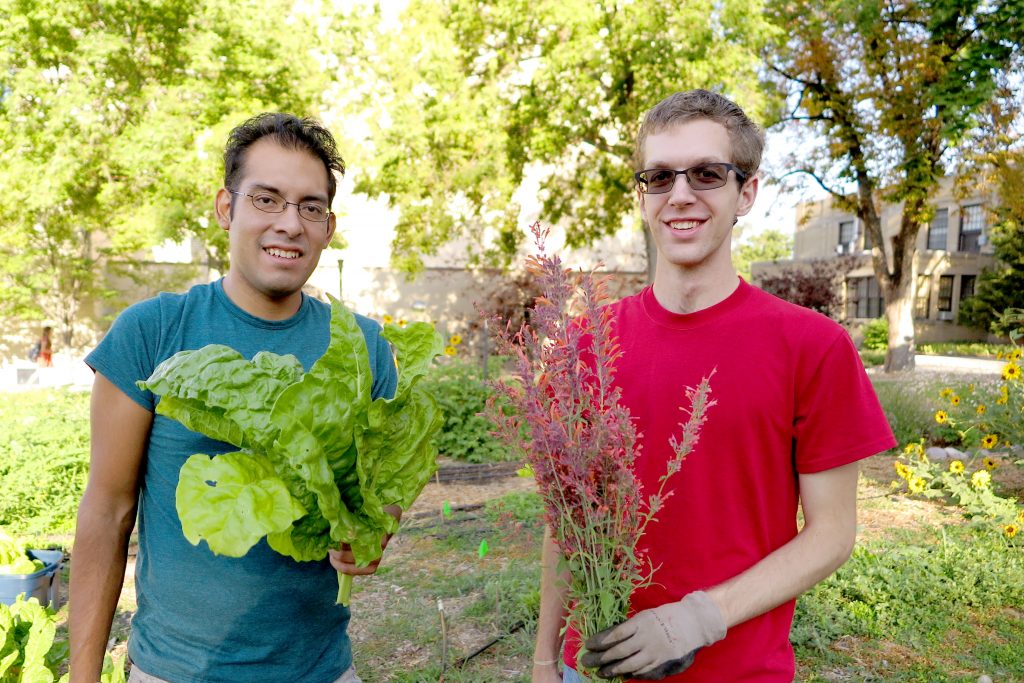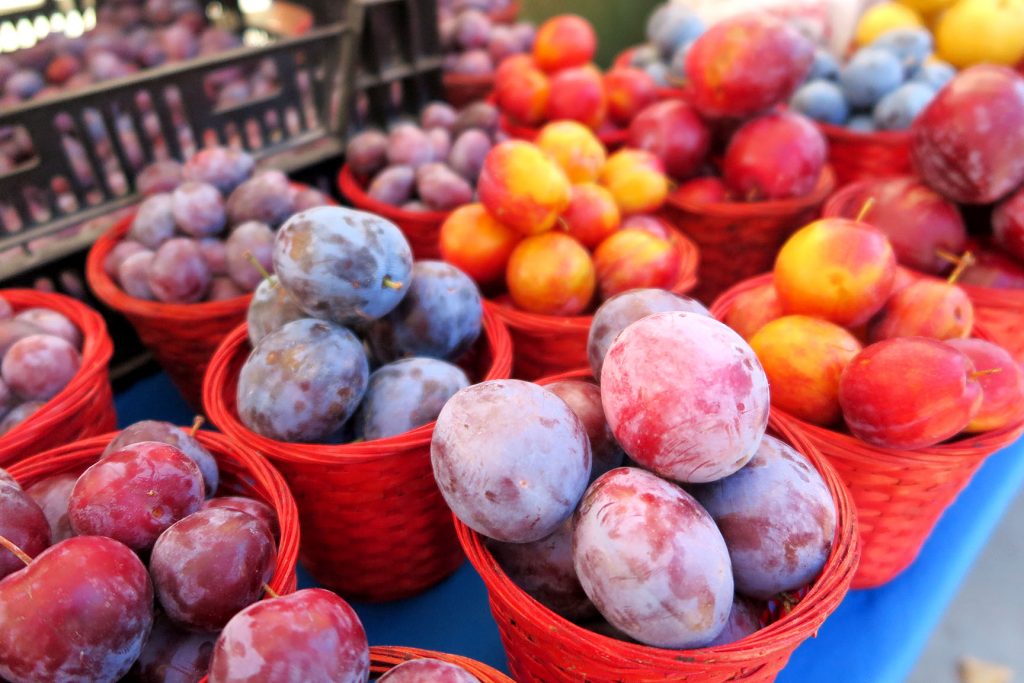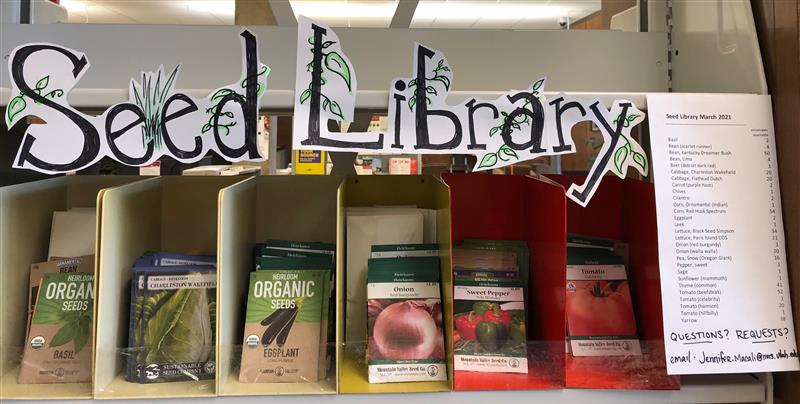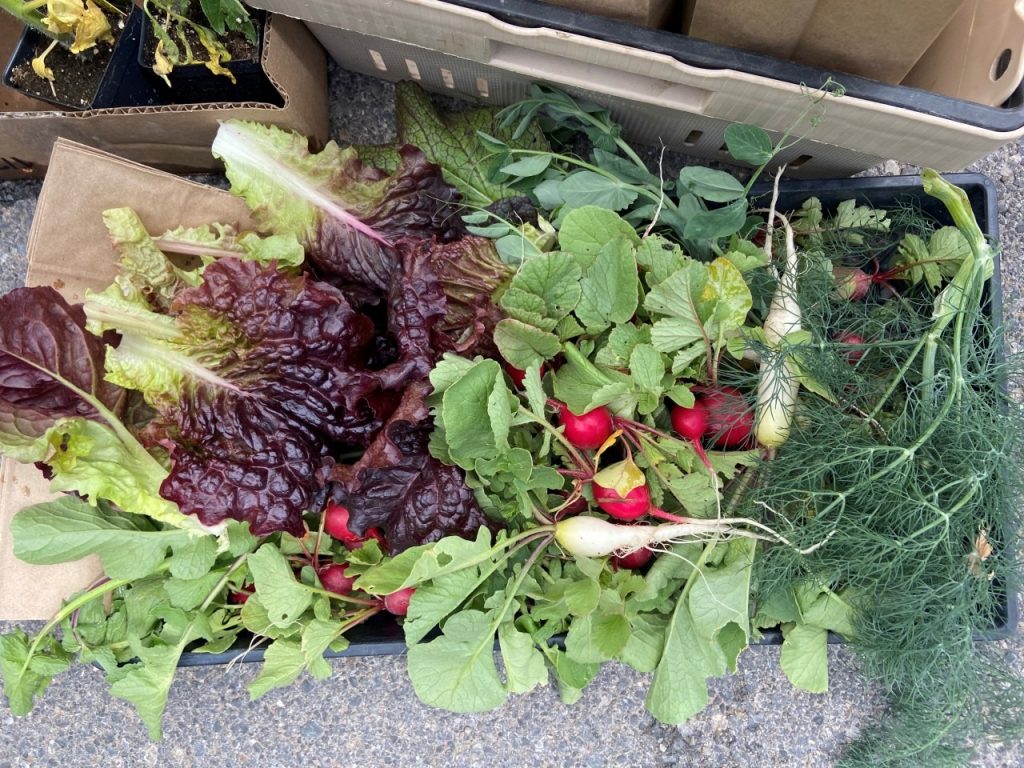Sustainable Food Initiatives
The University of Utah is committed to improving access to healthy and sustainable food on campus. Through various programs, courses and events, the Sustainability Office works with campus partners to bring food issues to the attention of the broader community.
The Sustainability Office organizes and advises student groups and programs related to sustainable food systems. We work to support students in their efforts to participate in their local food system and provide students with resources to make conscious choices about food. Stay in-the-know by signing up for our U Food Systems newsletter. Read short- and long-term goals for sustainable food on our campus, or contact the Edible Campus Gardens Coordinator for more information.
The Edible Campus Gardens are on-campus growing spaces that allow the campus community to better understand food systems. The gardens are a positive example of alternative agriculture, and they provide a learning space for students, staff, and faculty. Our Edible Campus Garden 2040 Master Plan provides more detail on the long-term vision for the gardens. Faculty can also request to use the gardens as outdoor laboratories.
The University of Utah Farmers Market links local growers, artisans, and resources for healthy lives with students, faculty, and staff campus. Market vendors provide on-campus access to diverse cuisines, as well as produce, baked goods, gifts, and more, while local organizations and on-campus departments showcase the full range of resources available to students. The U Farmers Market takes place Thursdays outside the Union building for the first half of the fall semester – now back for fall 2022!
Questions? Contact Kara Freedman
At the Eccles Health Sciences Library, you’ll find books, study spaces, and a collection of seeds that patrons can borrow to plant and grow. At the end of the growing season, borrowers replenish the collection by returning seeds they harvest to the library for future patrons to use.
The seed library, which was founded in 2020, has shared hundreds of seeds, seedlings, and small plants with the U community. Seed libraries can contribute to sustainability, increase access to locally grown food, and alleviate food insecurity. Saving seeds year after year also creates resilient plants that adapt to our local climate.
The Sustainability Office advises several food groups, including:
Real Food Challenge
In 2014, the University signed a commitment to participate in the national Real Food Challenge and to shift campus food purchasing to include 20 percent Real Food. In 2018, the U achieved a 15 percent Real Food purchase level.
U OF U SLOW FOOD
The Slow Food Student Chapter addresses issues of food justice, access, local food systems and more.
Hydroponic Club
Housed within the Lassonde Studios, the Hydroponic Club grows fresh greens without any soil through innovative systems built in-house. Email the club's leadership for more info.
Sustainability also partners with the following student food-related groups:
- FeedU Pantry
- Food Recovery Network
- University Student Apartments Garden Plots
- Lassonde Institute's Food Entrepreneurship program
- Nutrition Services
- Bennion Center Student-Directed Programs
Stay in the know about all student groups through Campus Connect.




